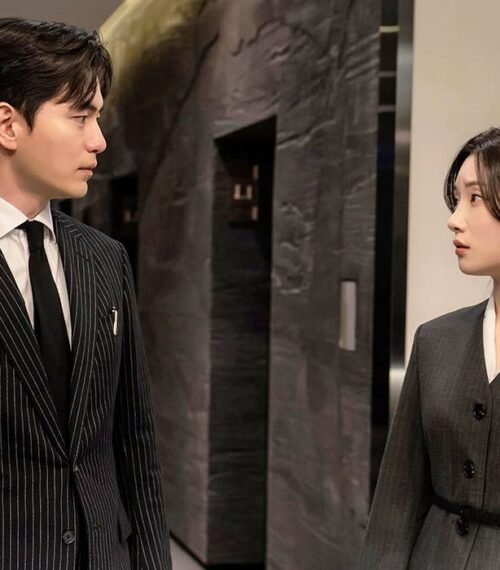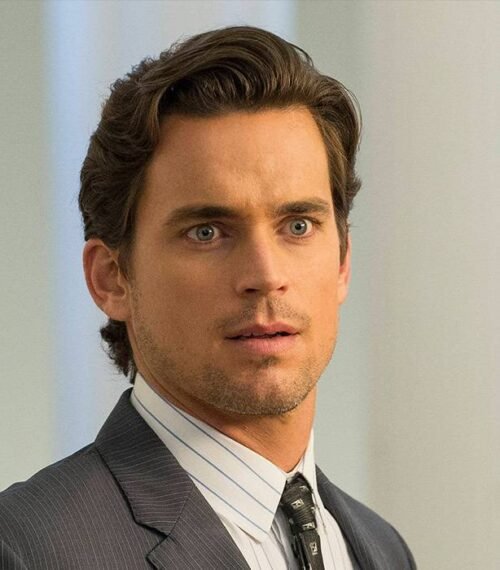The Choral takes place in 1916 in a quaint little town in Yorkshire, England. World War I is raging, and with the dwindling number of men in the small town of Ramsden, the local choral society must recruit from the teenage boys and girls of their community to put on their newest show. Captained by scorned musical director Dr. Guthrie, played by a thoughtful and passionate Ralph Fiennes, the town is determined to keep on pushing forward with business as usual, and although young soldiers return home injured from the war periodically, the town remains relatively unmarred on the surface. With theater director Nicholas Hynter at the helm and penned by playwright Alan Bennett, The Choral can't deny its theatrical roots, with the final act truly showing off those dramatic strengths, while the rest of the film is bolstered by strong performances despite an uneven script.
Ralph Fiennes Is the Best Part of 'The Choral'
Fresh off his stunning performance in Conclave last year, Ralph Fiennes is in top form in this role as the eccentric and elusive Dr. Henry Guthrie. Having recently returned from Germany, much of the small village of Ramsden regards Guthrie with apprehension. His association with the country that England is currently at war with and his unrepentant admiration for Germany's love of music and art don't earn him much love from the choral committee that employs him. Still, Guthrie is both passionate about music and extremely talented as a musical director. Guiding the choral society away from their typical show, his refreshing new ideas ultimately snowball into something that binds the entire community together through music.
Fiennes gives the strongest and most nuanced performance in The Choral. Although he is obstinately determined to remain an outsider in the small town, he is also eager to find talent beyond the typical corners of the community. Recruiting teenagers, Guthrie isn't afraid to bring in factory workers and bakery boys who might not fit the typical profile of a member of the choral to fill out the group. Fiennes delivers his part with an easy confidence that sometimes pushes into the neurosis of genius when he's absorbing a piece of music. His character's complicated past is only revealed in vague references, hinting at a much deeper character than the one we get, and it's a shame that most of his past is either hinted at or spoken about through rumors. He is, by far, the most complex character of the film.
'The Choral' Offers a Side Rarely Seen in World War I Movies

Ralph Fiennes in The Choral
While you might not watch The Choral and immediately call it a World War I movie, the war's constant presence is baked into the DNA of the story. Between the teenage boys facing conscription, especially as the war rages and volunteers begin to dwindle, and the return of injured young men who have lost their innocence on the battlefield, the war is ever-present on the minds of the people, even in this idyllic little town against a pastoral landscape. No one in the town is untouched by the war; fathers and mothers have lost sons, girlfriends wait for news of missing boyfriends, and boys face the impending inevitability of losing their youth to a bloody war with massive casualties.
Worst of all, the war is only halfway through, and despite the excitement at each victory that might hint at the war ending soon, it's hard not to look at the faces of these young men and wonder how many of them will even be able to make it back to Ramsden. It's a side rarely seen when it comes to tackling stories in this era:
'The Choral' Stumbles With Its Subplots and Romance Storylines

TIFF 50 logo
Where The Choral is the weakest is when it ventures outside of the older cast. Roger Allam, who plays the somewhat comical alderman Bernard Duxbury, delivers a strong performance, especially when working with Fiennes. Duxbury, the typical diva character, enjoys his moment in the spotlight as he is often given solos due to the fact that he is the key investor in the society. When he comes up against Guthrie, who prioritizes skill and talent over checkbooks, he gets a humbling moment, but his character also experiences the most growth as he quietly grieves the loss of his son.
However, aside from Allam, much of the younger cast struggles with offering more even and consistent performances. The young boys are caught at a nebulous time in their lives, waiting to be shipped off while still trying to embrace the last days of their youth. Each of the characters engages in romantic subplots that all fizzle a bit when it comes to effectiveness. The fact is that while their story is compelling on a grander scale, looking at the characters individually offers little beyond a stereotypical bildungsroman tale.
The characters who show the most potential, Jacob Dudman's Clyde and Amara Okereke's Mary Lockwood, also star at the center of the choral. While their personal storylines ultimately feel somewhat contrived and even awkward at times, their musical performances are where they shine. Dudman and Okereke's voices are angelic, and it's impossible not to get swept up in the beauty of the music even if the script is weak. True to form, the film's strongest moments occur when these characters fully embrace music and art. Everything else falls away, and it's both an immersive and revelatory experience.
While the final performance felt a bit too performative, given the director and screenwriter's history with theater, it feels apt. The Choral is far from a perfect film, and somewhat shallow in comparison to Fiennes' previous performances; however, there is still much to love in this unique take on a World War I film, giving us a look into the everyday life of the people directly affected by one of the most devastating wars in history.
The Choral had its world premiere at the 2025 Toronto Film Festival.





